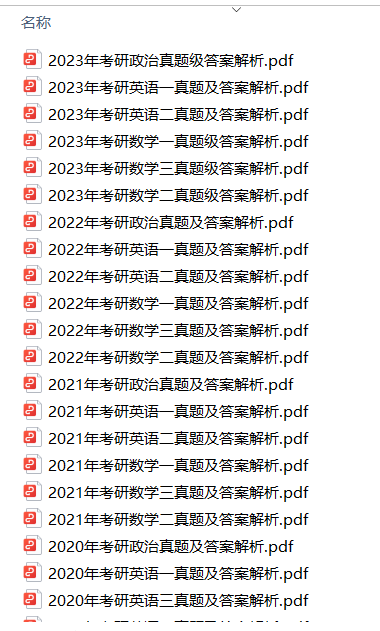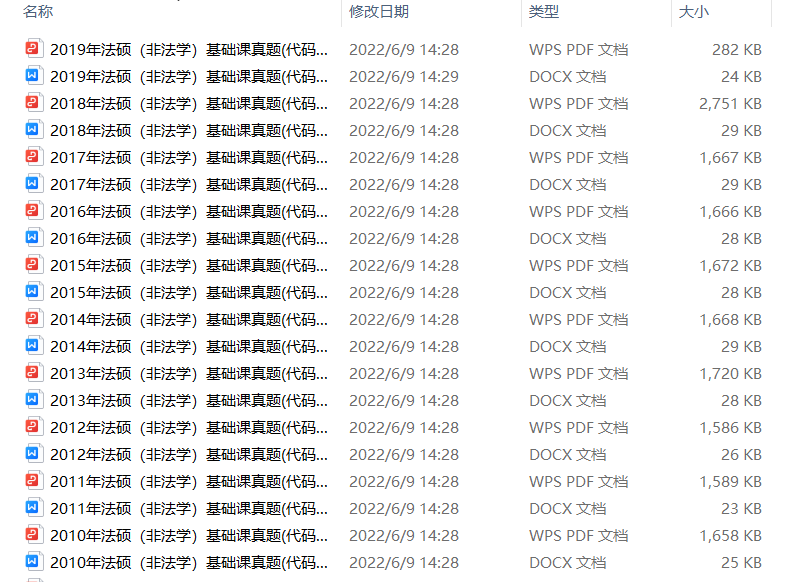特惠-26考研冲刺
特惠-27考研课
双证-在职硕士
免联考-同等学力
复试分数线
26复试全面指导
模拟复试面试
26考研-全套真题
26考研估分
保研-路线图
27考研-智能择校
27考研-英语测评
27考研-新大纲对比
热门-计算机择校

扫码加入训练营
牢记核心词
学习得礼盒
What does 2014 hold for investors?
投资者在2014年要注意些什么?
The central bet has to be more of the same: easy monetary policy, albeit lower for slightly less long; modest but steady global economic growth, led by the U.S.; further improvements in the euro zone; slightly higher rates of inflation and lower growth in emerging market economies; softer risk-free bond markets, tight spreads on corporate debt and an upward bias to equities though the bull's wild charge is likely to slow.
今年的基本情境预期是:宽松货币政策将维持,不过宽松程度有所降低,持续时间也略微减少;在美国经济带领下,全球经济取得温但稳健的增长;欧元区状况进一步改善;通货膨胀率小幅上升,同时新兴市场经济体增速放缓;无风险债券市场继续走软,公司债价差收窄,同时股市维持走高倾向,不过上涨势头可能减弱。人们应据此进行押注。
Right now, it looks as though markets are in one of those Goldilocks periods, when everything's just right and nothing could possibly go wrong. But there are substantial risks investors ought not to ignore.
目前市场似乎正处风平浪静的阶段,各个领域运转正常,也看不出哪里会出问题。不过,存在一些投资者不应忽略的重要风险。
I've categorized them by asset class, though there's plenty of crossover.
以下按资产类别列出了这些风险因素,不过许多因素可能同时影响多个资产类别。
DEVELOPED EQUITIES
发达国家股市
1) The U.S. market's boom during 2013 caught everyone off guard and now even some of the most ursine of money managers are factoring in the prospect of yet more dramatic gains. The general argument is that so far mom and pop investors haven't participated in this run and until they do, the market won't peak. But an interesting behavioral study of bubble formation from a few years back showed that when self-identified 'amateur' investors get burned twice by a bubble, they keep clear. Professionals, on the other hand, were shown to get sucked in a third time, thinking they can get out before everyone else. Is this the third bubble?
1)美国股市2013年取得的强劲上涨出乎绝大多数人的预料,目前就连一些坚定看跌的基金经理也开始评估市场进一步大幅走高的可能性。市场总体观点是,到目前为止,个人投资者尚未参与这轮上涨,在这些人入市前,股市不会见顶。不过,一项针对以往泡沫形成的有趣行为研究发现,自认为是外行的投资者在经历两次泡沫破裂的打击后就会不再入市。而专业投资者则会第三次进入市场,原因是认为这一次自己能够做到及时脱身。目前是否是第三次泡沫期呢?
2) U.S. equities have been underpinned by very high rates of corporate profitability. These profits have, in turn, owed a lot to government deficits and workers' inability to press for higher wages. As government deficits fall and employment growth picks up, those profit margins as a proportion of GDP will start to come down. If those margins fall faster than GDP rises, investors could start to reconsider some of the hefty valuations they've pinned on equities.
2)处在极高水平的企业利润率为美国股市本轮上涨提供了支持。企业之所以能取得如此高的利润水平,很大程度上归因于美国政府维持赤字以及劳动者无力要求加薪。随着美国政府赤字缩减,同时就业增长加快,企业利润相对于国内生产总值(GDP)的比例将开始下降。如果企业利润下降速度快于GDP增速,投资者可能开始考虑部分股票高企的估值是否合理。
3) As economic growth picks up, so too will bond yields. This will reduce the present value of future income streams and should push down valuation multiples.
3)随着经济增长加快,债券收益率上升速度也会加快。这将减少未来收入流的现值,进而压低估值倍率。
4) Alternatively, growth could slow as the U.S. economy shows itself to be on a long-run deflationary path, much like Japan. If investors lose faith in the Federal Reserve's ability or willingness to halt the process and the government proves reluctant to use fiscal policy to promote growth, equities could slide.
4)也可能出现的情况是,美国经济像日本那样步入长期通货紧缩轨道,从而增长将放缓。如果投资者对于美国联邦储备委员会(Federal Reserve, 简称:美联储)应对这种局面的能力或意愿失去信心,同时美国政府被证明不愿使用财政政策促进增长,股市可能出现下跌。
【英语阅读资料】这里有↑↑↑

 资料下载
资料下载
2014年-2025年考研历年真题汇总
发布时间:2024-04-25扫码添加【考研班主任】
即可领取资料包
考研大纲PDF电子版下载-历年(附解析)
发布时间:2024-04-25扫码添加【考研班主任】
即可领取资料包
2026年考研政数英备考资料zip压缩包
发布时间:2024-04-25扫码添加【考研班主任】
即可领取资料包
考研英语大纲词汇5500打印版(基础必备)
发布时间:2024-04-25扫码添加【考研班主任】
即可领取资料包
新东方在线考试模拟题【12套】
发布时间:2024-04-25扫码添加【考研班主任】
即可领取资料包
2026年考研专业课知识点总结
发布时间:2024-04-25扫码添加【考研班主任】
即可领取资料包
新东方考研资料下载地址
发布时间:2023-05-17新东方在线考研资料合集
下载方式:微信扫码,获取网盘链接

目录:
1.2013-2023年近10年政数英真题及解析PDF版(新东方)
2.2013-2023年专业课考试历年真题及解析PDF版
3.24考研复习备考资料大合集:大纲+备考资料+词汇书+考前押题+自命题
资料介绍:
1.2013-2023年近10年政数英真题及解析PDF版(新东方)
 、
、
2.2013-2023年专业课考试历年真题及解析PDF版


3.24考研复习备考资料大合集

3.24考研复习备考资料:考研大纲

3.24考研复习备考资料:政数英备考资料+自命题真题

------------------
考研备考过程中,尤其是专业课部分,参考往年的考试真题,对于我们的复习有更好的帮助。北京大学考研真题资料都有哪些?小编为大家进行了汇总。
北京大学考研真题资料-公共课

北京大学考研真题资料-专业课


以上就是关于“北京大学考研真题资料下载(历年汇总)”的整理,更多考研资料下载,请关注微信获取下载地址。
2024考研公共课必背知识点汇总
发布时间:2023-01-03扫码添加【考研班主任】
即可领取资料包
2013-2023考研历年真题汇总
发布时间:2023-01-03扫码添加【考研班主任】
即可领取资料包
考研英语大纲词汇(PDF可打印)
发布时间:2023-01-03扫码添加【考研班主任】
即可领取资料包
2024考研专业课知识点总结
发布时间:2023-01-03扫码添加【考研班主任】
即可领取资料包
2023考研政治 内部押题 PDF
发布时间:2022-11-16扫码添加【考研班主任】
即可领取资料包
徐涛:23考研预测六套卷
发布时间:2022-11-16扫码添加【考研班主任】
即可领取资料包
考研政数英冲刺资料最新整理
发布时间:2022-11-16扫码添加【考研班主任】
即可领取资料包
23考研答题卡模板打印版
发布时间:2022-11-16扫码添加【考研班主任】
即可领取资料包
2023考研大纲词汇5500PDF电子版
发布时间:2022-07-28扫码添加【考研班主任】
即可领取资料包
考研历年真题(公共课+专业课)
发布时间:2022-07-28扫码添加【考研班主任】
即可领取资料包
考研英语阅读100篇附解析及答案
发布时间:2022-01-07扫码添加【考研班主任】
即可领取资料包
新东方考研学霸笔记整理(打印版)
发布时间:2022-01-07扫码添加【考研班主任】
即可领取资料包
2001-2021年考研英语真题答案(可打印版)
发布时间:2022-01-07扫码添加【考研班主任】
即可领取资料包
考研英语词汇5500(完整版下载)
发布时间:2022-01-07扫码添加【考研班主任】
即可领取资料包
2022考研政审表模板精选10套
发布时间:2022-01-07扫码添加【考研班主任】
即可领取资料包
历年考研真题及答案 下载
发布时间:2021-12-09扫码添加【考研班主任】
即可领取资料包
考研政审表模板汇总
发布时间:2020-06-17扫码添加【考研班主任】
即可领取资料包
近5年考研英语真题汇总
发布时间:2020-06-17扫码添加【考研班主任】
即可领取资料包
考研英语大纲词汇5500
发布时间:2020-06-17扫码添加【考研班主任】
即可领取资料包
2022考研12大学科专业排名汇总
发布时间:2019-11-21扫码添加【考研班主任】
即可领取资料包
2023考研政治复习备考资料【珍藏版】
发布时间:2019-11-21扫码添加【考研班主任】
即可领取资料包
考研英语万能模板+必备词汇+范文
发布时间:2019-11-21扫码添加【考研班主任】
即可领取资料包
考研数学一、二、三历年真题整理
发布时间:2019-11-21扫码添加【考研班主任】
即可领取资料包

添加班主任领资料
添加考研班主任
免费领取考研历年真题等复习干货资料

 推荐阅读
推荐阅读
为了让考研的同学更高效地复习考研英语,新东方在线考研频道整理了“考研英语1阅读错几个后的复习计划”,考研的同学可以了解一下,希望对大家有所帮助。
为了让考研的同学更高效地复习考研英语,新东方在线考研频道整理了“考研英语二阅读篇数及题型分析”,考研的同学可以了解一下,希望对大家有所帮助。
为了让考研的同学更高效地复习考研英语,新东方在线考研频道整理了“考研英语阅读理解的总结与反思”,考研的同学可以了解一下,希望对大家有所帮助。
来源 : 网络 2025-06-13 08:02:00 关键字 : 考研英语阅读理解
为了让考研的同学更高效地复习考研英语,新东方在线考研频道整理了“提高考研英语一阅读理解的五大策略”,考研的同学可以了解一下,希望对大家有所帮助。
为了让考研的同学更高效地复习考研英语,新东方在线考研频道整理了“探索考研英语阅读文章的逻辑结构”,考研的同学可以了解一下,希望对大家有所帮助。
来源 : 网络 2025-06-12 08:03:00 关键字 : 考研英语阅读

 资料下载
资料下载
扫码添加【考研班主任】
即可领取资料包
扫码添加【考研班主任】
即可领取资料包
扫码添加【考研班主任】
即可领取资料包
扫码添加【考研班主任】
即可领取资料包
扫码添加【考研班主任】
即可领取资料包
扫码添加【考研班主任】
即可领取资料包
新东方在线考研资料合集
下载方式:微信扫码,获取网盘链接

目录:
1.2013-2023年近10年政数英真题及解析PDF版(新东方)
2.2013-2023年专业课考试历年真题及解析PDF版
3.24考研复习备考资料大合集:大纲+备考资料+词汇书+考前押题+自命题
资料介绍:
1.2013-2023年近10年政数英真题及解析PDF版(新东方)
 、
、
2.2013-2023年专业课考试历年真题及解析PDF版


3.24考研复习备考资料大合集

3.24考研复习备考资料:考研大纲

3.24考研复习备考资料:政数英备考资料+自命题真题

------------------
考研备考过程中,尤其是专业课部分,参考往年的考试真题,对于我们的复习有更好的帮助。北京大学考研真题资料都有哪些?小编为大家进行了汇总。
北京大学考研真题资料-公共课

北京大学考研真题资料-专业课


以上就是关于“北京大学考研真题资料下载(历年汇总)”的整理,更多考研资料下载,请关注微信获取下载地址。
扫码添加【考研班主任】
即可领取资料包
扫码添加【考研班主任】
即可领取资料包
扫码添加【考研班主任】
即可领取资料包
扫码添加【考研班主任】
即可领取资料包
扫码添加【考研班主任】
即可领取资料包
扫码添加【考研班主任】
即可领取资料包
扫码添加【考研班主任】
即可领取资料包
扫码添加【考研班主任】
即可领取资料包
扫码添加【考研班主任】
即可领取资料包
扫码添加【考研班主任】
即可领取资料包
扫码添加【考研班主任】
即可领取资料包
扫码添加【考研班主任】
即可领取资料包
扫码添加【考研班主任】
即可领取资料包
扫码添加【考研班主任】
即可领取资料包
扫码添加【考研班主任】
即可领取资料包
扫码添加【考研班主任】
即可领取资料包
扫码添加【考研班主任】
即可领取资料包
扫码添加【考研班主任】
即可领取资料包
扫码添加【考研班主任】
即可领取资料包
扫码添加【考研班主任】
即可领取资料包
扫码添加【考研班主任】
即可领取资料包
扫码添加【考研班主任】
即可领取资料包
扫码添加【考研班主任】
即可领取资料包

 阅读排行榜
阅读排行榜
 相关内容
相关内容